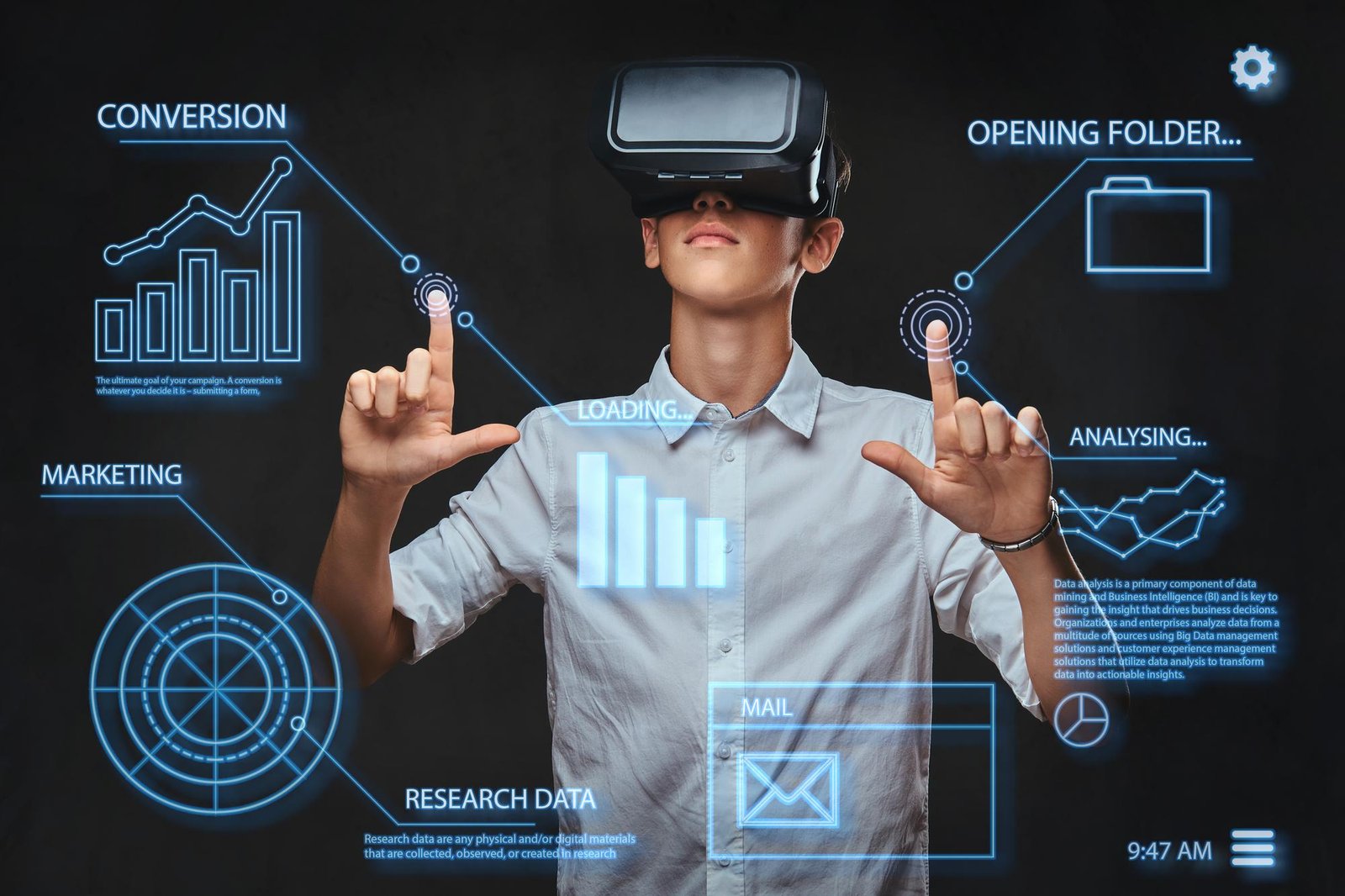As we approach 2025, the landscape of digital marketing continues to evolve at a rapid pace. Businesses must stay ahead of the curve to remain competitive in an increasingly crowded digital space. In this blog, we’ll explore some of the emerging trends that are set to shape the future of digital marketing, including AI-driven marketing, personalization, and interactive content, and provide insights on how businesses can adapt to thrive.

1. AI-Driven Marketing
Artificial intelligence (AI) is no longer a futuristic concept; it is now a fundamental component of many digital marketing strategies. By 2025, we can expect AI to play an even more significant role in marketing automation, data analysis, and customer engagement. Here’s how:
Data-Driven Insights: AI can analyze vast amounts of data in real time, providing marketers with insights that can be used to refine strategies, identify trends, and predict consumer behavior. This allows businesses to make informed decisions based on data rather than intuition.
Personalized Marketing Experiences: AI will enable hyper-personalization, where marketing content can be tailored to individual users based on their preferences, behaviors, and past interactions. This not only enhances user experience but also drives higher conversion rates.
Chatbots and Customer Support: AI-powered chatbots are becoming increasingly sophisticated, providing 24/7 customer service and support. By 2025, these tools will be capable of understanding complex queries and delivering timely and accurate responses, enhancing customer satisfaction.
How to Adapt: Businesses should look to incorporate AI tools and technologies into their marketing strategies. Investing in machine learning algorithms and customer data platforms can help organizations gather valuable insights and create personalized marketing campaigns that resonate with their target audience.
2. Enhanced Personalization
Personalization has been a growing trend in digital marketing for years, and it’s set to become even more pronounced by 2025. Consumers now expect personalized experiences based on their preferences and behaviors, and businesses must rise to the challenge.
Dynamic Content: Websites will increasingly feature dynamic content that changes based on visitor behavior, demographics, and past interactions. This could include product recommendations, tailored landing pages, and personalized email marketing.
Segmentation and Targeting: Advanced data analytics will allow marketers to segment their audience more effectively, ensuring that marketing messages reach the right people at the right time. This level of specificity enhances engagement and drives conversion rates.
How to Adapt: Brands should focus on gathering and analyzing customer data effectively to implement personalized strategies. Utilizing CRM systems, tracking user behavior, and integrating AI tools for insights will be essential for delivering tailored experiences.
3. Interactive Content
In an age where consumers are bombarded with information, engaging content has become crucial. Interactive content not only captures attention but also encourages user participation, leading to increased engagement and brand loyalty.
Quizzes and Polls: Quizzes and polls allow businesses to engage users directly, providing insights into customer preferences and interests. This type of content can also be highly shareable, expanding brand reach.
Augmented Reality (AR): AR is expected to become more mainstream in marketing, providing immersive experiences that captivate users. Brands can leverage AR for virtual try-ons, interactive product demonstrations, and more.
Video Content: Interactive videos that allow users to make choices and influence the outcome will become more popular. This engagement fosters a deeper connection with the audience and encourages them to spend more time with the brand.
How to Adapt: Companies should invest in creating interactive content tailored to their audience. This could include developing engaging quizzes, utilizing AR technology, or incorporating interactive elements into video marketing efforts.
Conclusion
As we move toward 2025, the digital marketing landscape will continue to be shaped by technological advancements and changing consumer expectations. AI-driven marketing, enhanced personalization, and interactive content are just a few of the trends that will define the future of digital marketing. Businesses that adapt to these trends and embrace innovation will not only stay competitive but also build stronger connections with their audiences.
By staying informed and agile, marketers can navigate the complexities of the digital world and leverage these trends to create impactful, engaging marketing strategies that resonate with their target audience. The future of digital marketing is bright, and those who embrace change will unlock new opportunities for growth and success.
